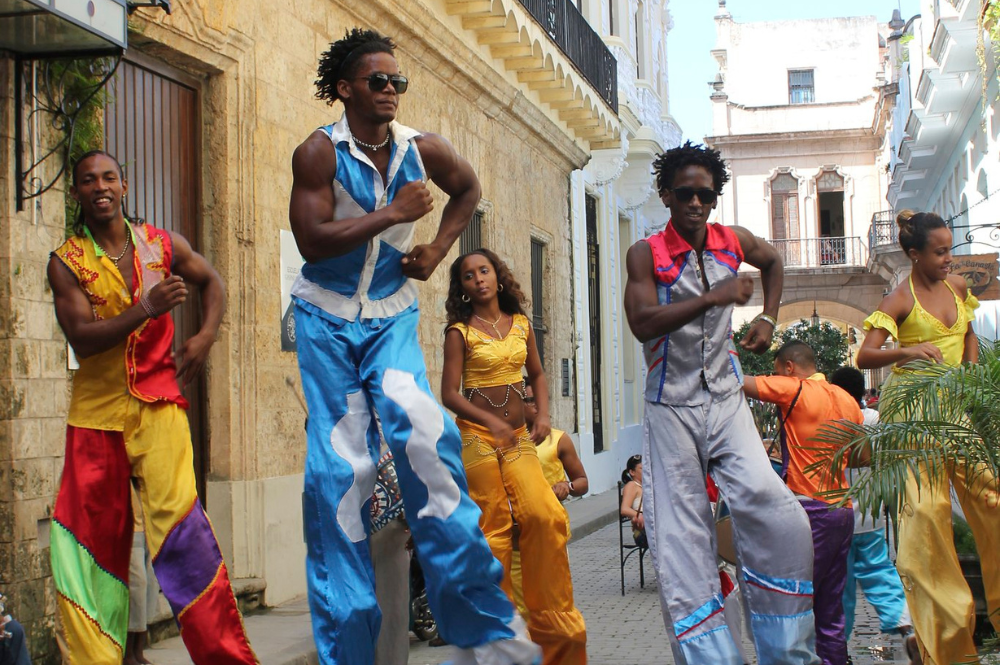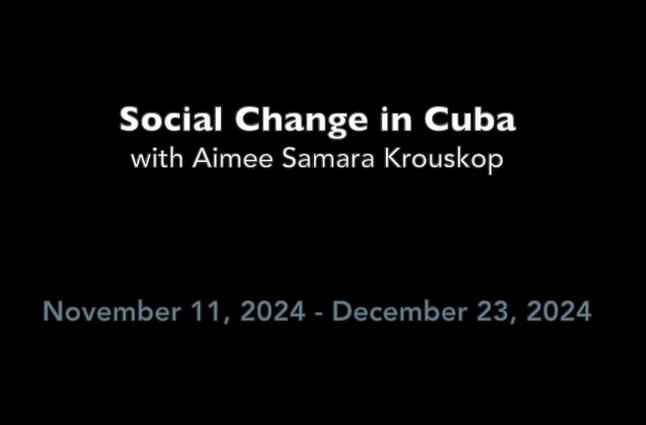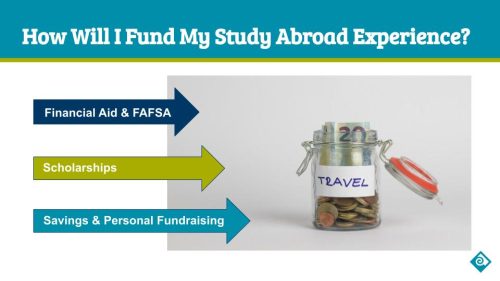Social Change in Cuba

Watch this Cuba Program Video with instructor Aimee Krouskop to learn about the location, course focus, and program highlights.
Overview
In this course, we’ll learn about social change in two parts:
First, during weeks 5-8 of fall term, we’ll explore how sociologists study social change and what it means to you and your community. We’ll study the forces that shape social change, such as globalization, technology, war, culture, social movements, and the environment. We’ll look cross-culturally and with an equity lens at how social change is experienced in different global settings. We’ll look at social change in the US, paying close attention to the experiences of people across intersecting social locations related to gender, sexuality, class, race, and ethnicity.
Second, the program will travel to Cuba for two weeks during winter break. Students will live with local families in Havana and discover the unique story of Cuba’s drastic social, economic, and political changes since the beginning of the 20th century.
Program highlights
- Explore Cuba’s vibrant expressions in food, music, visual art, and dance
- Visit temples, museums, and art spaces to meet young Cubans promoting Afro-Cuban culture through small businesses
- Visit a community project that promotes Afro-Cuban popular traditions and LGBTQ+ rights, and learn how dance and drumming carries ancient Afro-Cuban expression as well as stories of slavery and African diaspora
- Engage with local healthcare professionals to learn about the nation’s public healthcare system and their national strategy for handling the Covid pandemic
- Travel to a mountain community to learn how Cuba’s isolation prompted food self-sufficiency and sustainable agriculture and how the government’s conservation programs have preserved the ecosystem of the island, reforested the countryside, and brought services to the rural poor
Program Dates: December 12 – 23, 2024
Course starts at PCC prior to program travel dates. Due to US Government regulations, all program participants must depart from the US to Cuba on December 11, and must return to the US from Cuba on December 23, 2024.
Academics
PCC study abroad programs are courses offered for PCC credit. Highlights for this course include:
- Instructors: Aimee Krouskop (aimee.krouskop@pcc.edu [opens in new window])
- Location: Havana, Cuba
- Course: SOC 205
- Credits: 4
- Prerequisites: WR 115 and RD 115 or IRW 115 and MTH 20 or equivalent placement
- Program Type: Split Course (course starts at PCC in Portland prior to program dates)
Timeline
The PCC study abroad application timeline includes the following steps:
- September: Program application opens
- May 15: Application deadline*
- May 22: $500 non-refundable program deposit deadline, which secures your place in the program (the deposit goes toward your total program fee and can be submitted after you are conditionally accepted to your program)*
- June: Programs confirmed to travel, pending course enrollment
- June – November: Travel preparation, Pre-Departure Orientation sessions, course registration, and fall term payment (tuition and the remainder of the program fee will be charged to your student account and are due at the fall term payment due date)
*Late applications and deposits may be accepted, please contact the Education Abroad Office to learn more.
Passport applications can take up to 3 months to process, so plan accordingly. For Social Change in Cuba, you must have a physical copy of your passport by September 1, 2024.
Ready to apply? Visit Apply for Study Abroad to get started.
What is your financial plan? Visit Funding & Scholarships for more information.
Cost
Here is a summary of the overall costs and financial responsibilities for participating in a study abroad program through PCC:
Study Abroad Program Estimated Cost Sheet
Total Cost = PCC Tuition + Program Fee + Additional Costs
PCC Tuition
- 4 credits (in-state residency)
Estimated: $600
Program Fee
- Housing during the program
- Select meals
- Co-curricular/cultural activities
- Airport pickup/drop-off
- Program transportation and entry fees
- On-site orientation
- International health insurance
- 24/7 emergency support
Estimated: $3,650
Additional Costs
- Round-trip airfare ($1000 roundtrip)
- Passport (new $165 or renewal $130)
- Books and supplies ($0)
- Meals on your own ($200-300)
- Personal spending money ($300-400)
Estimated: $1,500-1,800
Financial Resources
Most students use a combination of the following options to cover the cost of studying abroad with PCC:
- Financial Aid
- Scholarships
- Personal Fundraising
- Personal savings
Visit Funding Your Study Abroad Experience for more information on developing a funding plan for your study abroad experience.
Eligibility Requirements
To participate in a PCC study abroad program, you must meet the following requirements:
- Be 18 years of age or older by program start date.
- Maintain good academic and disciplinary standing.
- Complete the prerequisite course(s) for the study abroad program prior to the program start date.
- Watch our Information Session videos or meet individually with an Ed Abroad Advisor.
- Possess qualities of independence, self-reliance, and maturity necessary for studying abroad.
- Develop the willingness and ability to embrace the challenges of studying abroad.


